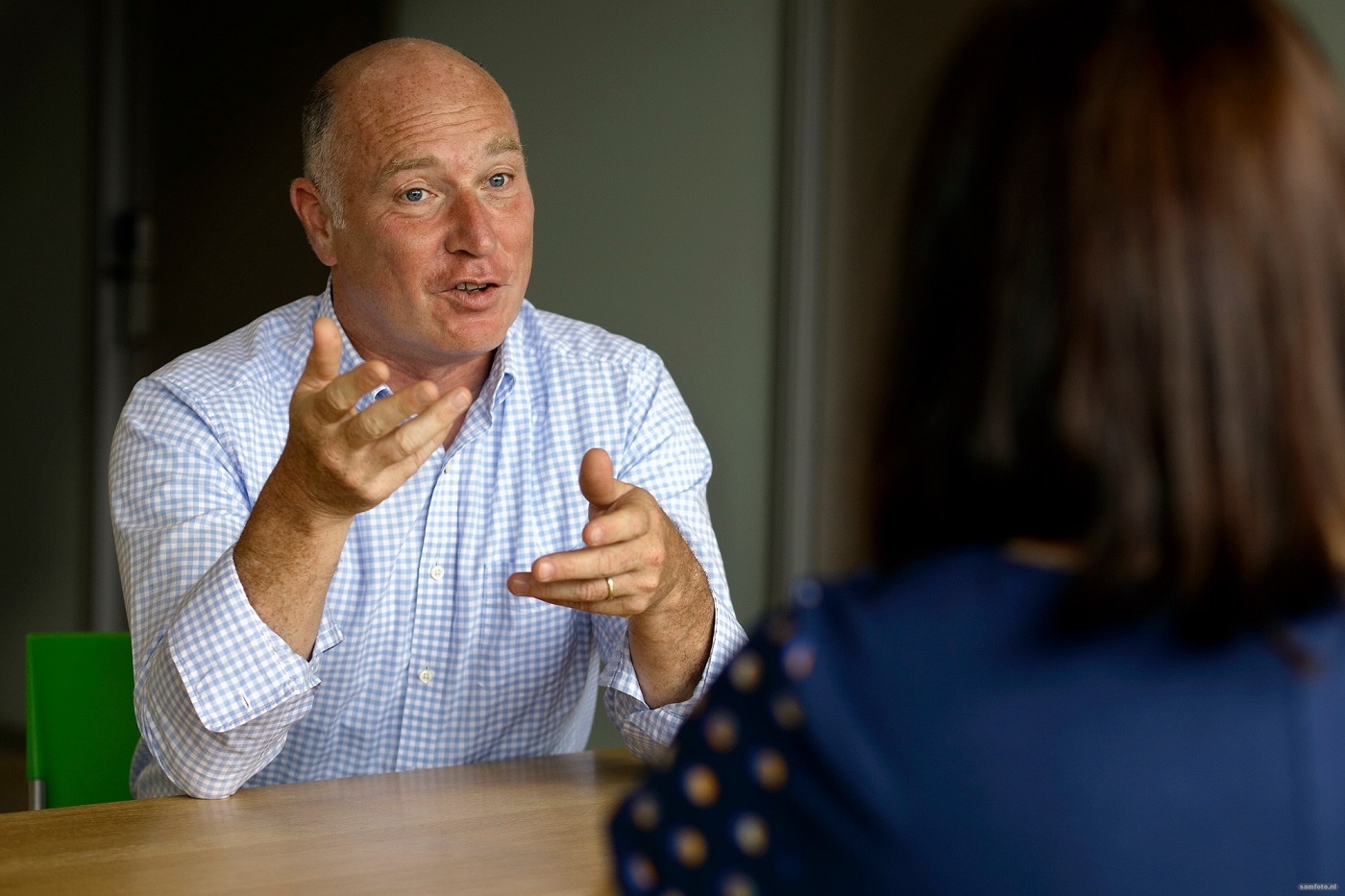Since his appointment in March, ombudsman Job van Luyken has had over a hundred meetings. Who is he, what does he do and why do TU Delft staff come to him?
Job van Luyken: "Evasys is a public pillory and teachers cannot defend themselves." (Photo: Sam Rentmeester)
What was your first impression of TU Delft?
“That it is a real university. I studied at the Catholic University of Nijmegen for seven years and have spent some time at various universities. The buildings are usually a little boring, especially the staff areas. Everything connected to the students is usually more colourful and pleasant. The more you visit the staff dungeons, the less money seems available.”
Van Luyken points to the wall opposite him. There is a huge poster of a suspension bridge in a forest. He did not hang up the poster himself, but as far as he is concerned, it should never be removed. The bridge, to his mind, symbolises the work that he does – connecting people.
“The atmosphere at this university is pleasant. I like it, all the students who are here to shape their lives. That is inspiring. Then you spend more time here and you notice the inadequate IT system in all aspects. The design of your desktop, its appearance. And searching the internet. You would not wish that on your worst enemy. You can’t find anything. I first need to log in on the website and then onto the staff page. You don’t expect this from a university of technology. I have TU Delft email on my laptop and telephone, but if I send an email through my phone, it does not appear in the sent box of my email. So you can’t find anything. This could be different, but apparently there is no money for this.”
How independent are you?
“I am contracted through a third party, BMW Voor Elkaar (BMW for each other). BMW in Dutch stands for staff welfare. TU Delft pays BMW Voor Elkaar who, in turn, pays me. I prefer having a third party between myself and my client as it enhances the independence of the position. It was a brave decision of the Executive Board to have an ombudsman. I sense that it is not easy for them, and I can well imagine that. They have no idea what I do and who comes to me with what issues. In principle, I can dig up anything with the independent investigative authority that I have.”
Are people obliged to cooperate?
“Yes. And I hope that the Board ultimately concludes that my presence here takes away more concerns than it brings. I see that the Board is happy that I raise issues. I would like to attend a consultation meeting once between the Works Council and a board member, just to get a feeling of how things lie. If a board and works council are able to meet on middle ground, they will avoid a whole lot of trouble. Works councils may give unsolicited advice and my unsolicited advice is to exercise that right.”
How many people have already come to see you?
“Excluding the initial introductory meetings, I had more than a hundred meetings in the first four months.”
That sounds a lot.
“This does not mean that there are plenty of problems. But there are a few issues at play. They usually concern people who are disappointed because a decision has or has not been taken. These decisions could be about their R&D, a promotion, a contract, privileges that they do or do not receive, their workspace, collaboration and inter-personal relationships. These involve about 75 people in four months.”
What can you do for the people that come to you?
“I have sometimes been able to put things in perspective for them. In two cases, I acted as mediator and that seems to have worked. I always say that you get a lifetime guarantee from me, so if things don’t work for you at a certain point, drop by.”
Are there any underlying problems?
“Yes. Communication is usually at the heart of things going wrong. Communication is listening. Some people don’t want to speak out and some people don’t want to hear things. And people make assumptions. But we are at a university, and what do universities do with assumptions? They verify them! So verify things. Check what people mean when they say something. If it comes across as odd, ask them exactly what they meant. Assumptions are deadly. You need to take on the role of a journalist – ask, ask and ask again.”
The staff ombudsman, Job van Luyken, is seated in room 5.05 of the Faculty of Civil Engineering and Geosciences building. Telephone: +31(0)627024134. Email: j.r.h.m.vanluyken@tudelft.nl
Do you have a question or comment about this article?
c.j.c.vanuffelen@tudelft.nl


Comments are closed.